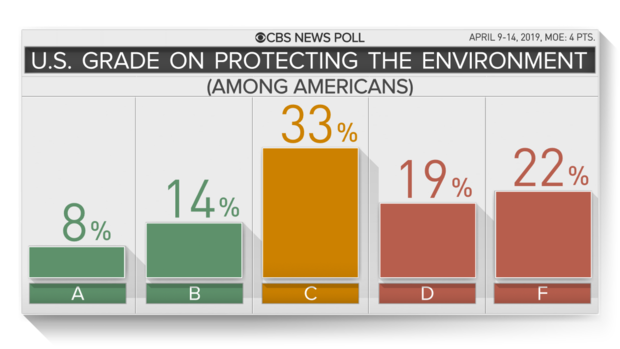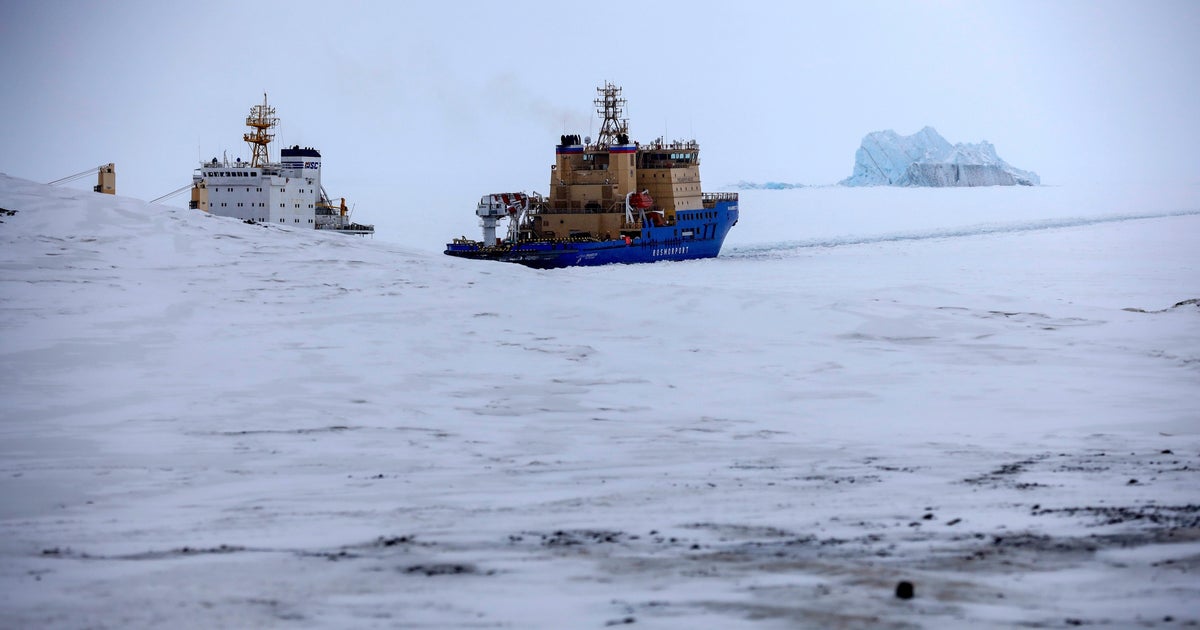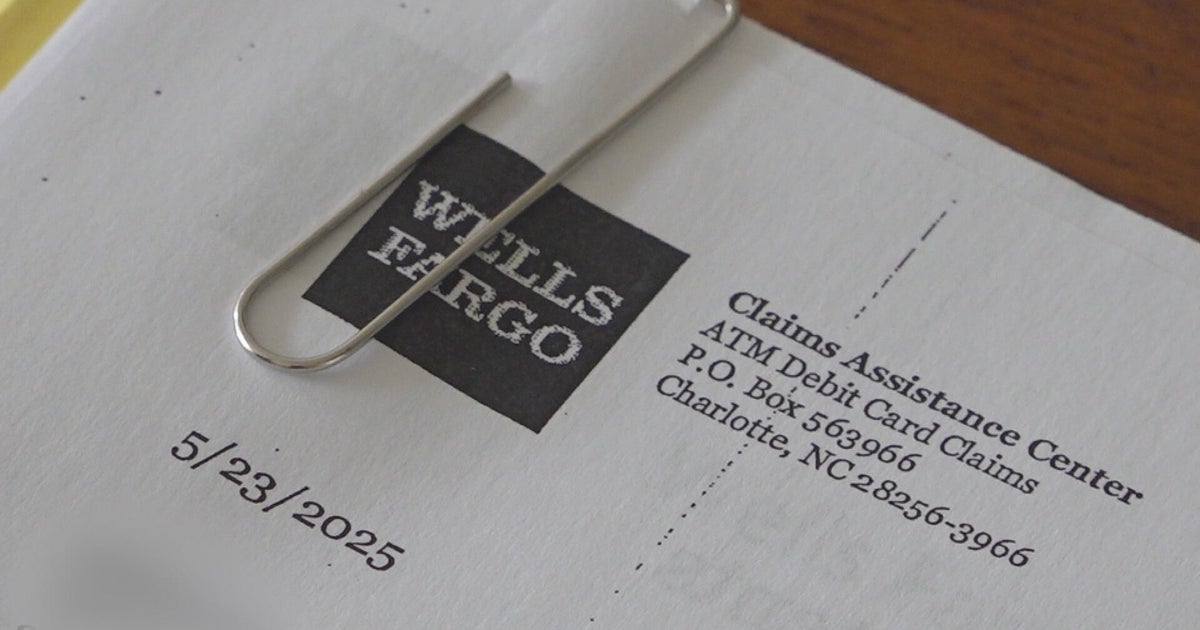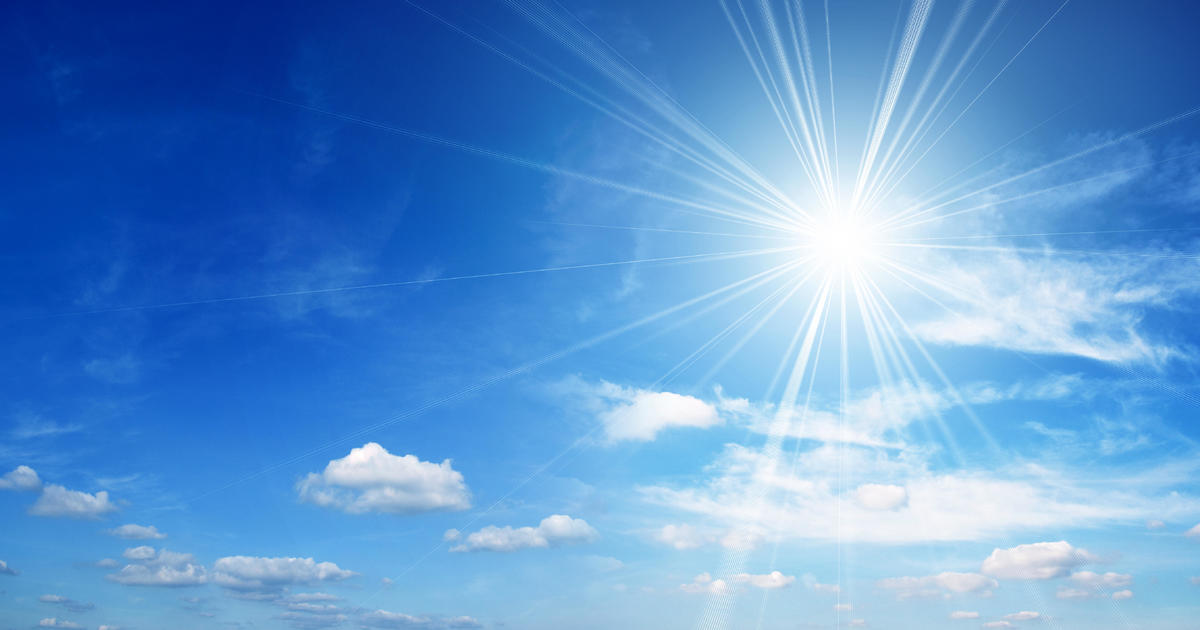Earth Matters: Climate change challenges from every corner of the globe
On April 22, 1970, CBS News marked the first ever Earth Day with a special report anchored by Walter Cronkite. "The gravity of the message of Earth Day still came through: act or die," Cronkite said at the time.
CBS News correspondents reported on protests, clean-up efforts, and calls to action from all over the country. It was the start of the modern environmental movement. Now 49 years later, we are covering the environmental issues of the day -- this time from every corner of the globe.
We're in the Amazon rainforest in South America where deforestation threatens everything from the plants and animals to the indigenous tribes who live there. We'll take you to New Delhi, India, one of the most polluted cities in the world. We'll also meet the young people of South Africa leading a renewable energy revolution.
On the first Earth Day, Cronkite told viewers that cleaning up our planet would require both personal involvement and sacrifice. "Those who ignored Earth Day, well that's one thing. Those who ignore the crisis of our planet, that's quite another," he said.
Battle against Amazon deforestation
For the past 20 years, environmentalists in Brazil thought they were making progress as the rate of Amazon deforestation slowed way down. But now, activists are noticing it's starting to speed up again. Combine that with a newly elected Brazilian president who is openly critical of environmental priorities, and environmentalists are seriously concerned, reports CBS News correspondent Vladimir Duthiers.
Tanguro Ranch, a 200,000-acre industrial farm in the remote Mato Grosso region of Brazil, sits right up against massive walls of dense rainforest. In essence, it's the last line of civilization, and the frontline in the battle against deforestation.
"Everybody living in India is a smoker"
In Delhi, a booming region of 19 million, 1,000 more cars hit the road every day, contributing to smog that's dangerous in many ways. But the real cost of the pollution is its toll on human health.
As CBS News correspondent Elizabeth Palmer reports, between 800 and 1,000 people with lung problems line up at the emergency ward of Delhi's National Institute for Tuberculosis and Respiratory Diseases every day for treatment.
"We have no non-smokers in India. Everybody living in India is a smoker," said Dr. Arvind Kumar, a prominent chest surgeon and founder of the Lung Care Foundation. What Dr. Kumar means by that bold statement is that every single person in India is a smokers just because the country's polluted air.
At its worst, it can be 70 times dirtier than what the World Health Organization considers safe.
So politicians were left with no choice; they had to at least try to go green.
Drive around London to see impact of climate change
You don't have to go somewhere exotic to run into the effects of climate change. A drive around London will do it. Because of environmental concerns, that drive has gotten a lot more expensive for some lately. This month London introduced the world's first ultra low emission zone to fight the city's toxic levels of air pollution. It is one of the most radical anti-pollution policies on the planet.
Younger generation pushes South Africa's solar revolution
A major energy crisis has affected millions of peoples' livelihoods in South Africa. A decade of mismanagement and corruption has left the national electricity grid close to collapse, regularly plunging much of the nation into darkness.
Widespread blackouts can cost the country's economy up to $284 million every day. But the energy shortages are also spurring a new generation of entrepreneurs, as renewable energy is increasingly being seen as the answer to the problem.
One thing South Africa has a lot of is sunshine - 2,500 hours a year on average, according to the weather bureau, which makes it ideal for the country's solar power revolution. It's a revolution led by a younger generation which has no allegiance to old ways of doing things.
"For our generation climate change is obvious; we not only experience it, but we're not threatened by what it means to change the ways of doing business in order to respond to that," said Fumani Thembi, a co-founder of Pele, a company committed to building renewable energy plants across Africa.
Their plant at Touws River, near Cape Town, contributes enough energy to power 36,000 households. It's cheap, it's clean and - unlike coal - in endless supply.
Thembi said, "I think it's time, it's history and perhaps also opportunity, for us to finally get on a development path that is sustainable as the African continent."
Climate change threatening to dry up the Rio Grande
For nearly 2,000 miles, the Rio Grande River winds it way from the Rocky Mountains down to the Gulf of Mexico. It provides drinking water and irrigation for more than six million people in three U.S. states. But climate change is threatening that vital water supply.
For more than 130 years, one river gauge in northern New Mexico has tracked the pulse of the Rio Grande. "It's the oldest continuously operated gauge in the United States operated by the U.S. Geological Survey," USGS hydrologist Mark Gunn said.
When CBS News correspondent Michelle Miller and her team visited, the Rio Grande was beating along. But Gunn told us last July that its flow nearly flat-lined.
"Since we've been measuring since 1889, last year was the lowest discharge ... in the history of this gauge," Gunn said, adding, "It was so low that we actually had to dig out this whole entire area and dig a channel into the river to be able to get water to go to the gauge."
"So it basically made your machine here malfunction," Miller said.
"Yes, it did," Gunn said.
The Colorado snowpack that melts into the Rio Grande is declining - 25 percent over the last 50 years - and University of New Mexico climatology professor David Gutzler said climate change is threatening to dry it up.
"I foresee dry spells getting drier, droughts getting more intense and water resources being put under more pressure," Gutzler said. With that in mind, cities downstream have been preparing. Albuquerque's water authority has spent $6 million incentivizing desert-friendly landscaping.
Australia working around-the-clock to combat ocean pollution
Rising sea levels and coral bleaching are just some of the many factors that affect the diverse marine life in Australia. So is ocean pollution. However, there is a group of people hard at work trying to find a viable solution.
In the waters around the capital city of Sydney, a device called a Seabin is working around-the-clock slowly filtering out debris, in marinas, ports and yacht clubs.
"It collects plastics, microplastics, fuel and oil from the surface of the water," said Alexandra Ridout, who works with the Seabin Project.
Each Seabin costs $4,500 and runs on either electricity or solar power.
One Seabin is capable of catching the equivalent of 90,000 shopping bags or nearly 170,000 plastic utensils over the course of the year. There are more than 700 Seabins working in harbors and marinas around the world.
The company is deploying an additional 60 Seabins in the U.S. this week, on top of the six currently cleaning the waters around California.
CBS News poll: Growing number of Americans think environment will be worse for next generation
Americans give the U.S. just average or low marks on the progress it has made on protecting the environment and most believe the environment will be worse for the next generation of Americans.
A majority thinks global warming is caused mainly by human activity, and more than half of Americans think it's having a serious impact now. Still, about 6 in 10 think humanity can do something to stop or slow climate change.
When asked to grade the U.S. on protecting the environment, few Americans give the U.S. high marks. Most give the country a "C" at best, including 22 percent who give a failing grade of "F." Back in 2009, just 6 percent said the U.S. deserved an "F" for the progress it had made in protecting the environment.
Extreme weather traced to rapid Arctic changes
Extreme weather is becoming more frequent and widespread around the country. California suffered its worst wildfire season in history last year. In January, the Midwest saw record-breaking cold. Historic flooding in Nebraska last month caused more than a billion dollars in damage.
According to CBS News climate and weather contributor Jeff Berardelli, we can trace the origins of some recent extreme weather to rapid changes in the Arctic. Normally the polar ice caps keep the Earth's temperature down by reflecting the sun's rays back into space. Now the ice is melting fast - over 900,000 square miles, nearly six times the size of the state of California - over the past 40 years.
As a result, more of the sun's rays are being absorbed. That is heating the Arctic twice as fast as the global average. That uneven warming is now impacting the weather in the mid-latitudes by throwing the jet stream "out of whack."
The jet stream is a river of air in the upper atmosphere controlling the track of storms and the distribution of cold and warm air. Recent evidence shows the jet stream is becoming more amplified, making the weather more extreme - a theory that's playing out in real time, according to Berardelli.
"The International Space Station of the oceans"
As the Earth's poles are warming faster than any other place on the planet, we take you to Antarctica's "Iceberg Alley" aboard a one-of-a-kind scientific drilling vessel, the JOIDES Resolution. Researchers from around the world on the drill ship are investigating the climate history of Antarctica.
"This is a multinational scientific organization, collaboration between about 20 nations... so you can think of it like the International Space Station of the oceans," said Maureen Raymo, one of the chief scientists on the voyage.
"We're drilling the deep sea sediments... that have been dropped by icebergs over the last few million years," Raymo explained. "You can picture it like if you had a multilayered cake and you took a straw and you stuck the straw into the cake and you pulled the straw out and you'd see all the layers of the cake."
Raymo said what's important for people to understand is that "the ice sheets are melting."
"It's because we know so much about how climate varies naturally that we know what's happening now isn't natural, that it's caused by human activity," Raymo said.
At the U.S. outpost at Palmer Station, a scientific support team is helping American researchers during the Antarctic winter.
"It's a really cool thing that our country does that just not a lot of people know about, and we really like being part of that small group of people who come down here and are out there on the cutting edge of science, helping the scientists get their work done," said Ken Keenan, who's part of the support team.
John Kerry on Paris climate agreement
As secretary of state under President Obama, John Kerry was instrumental in the 2016 signing of the international Paris climate agreement. Last year, the Trump administration announced its intent to withdraw from the agreement.
"It's ideological, and frankly, it's short-sighted and it's stupid and it's dangerous," Kerry said on the "CBS This Morning" podcast. "President Trump's decision to pull out of Paris will cost lives, lives of Americans. It will cost billions of dollars."
In 2017, damage caused by Hurricanes Harvey, Maria and Irma cost the United States $265 billion, according to the National Oceanic and Atmospheric Administration. Climate experts assert we can trace the origins of some recent extreme weather to climate change.
"There are countless economic analyses that show it is cheaper to make the investments and do the things we need to do now to prevent the damage than it is to wait for the damage," Kerry said. "Everything compels us to move in this direction except we have a president who doesn't read, doesn't understand the science and has ideologically decided to side with the deniers who literally don't know what they're talking about."
How a conservative Texas town became a leader in renewable energy
Mayor Dale Ross says Georgetown, Texas, was on the cutting edge of the energy market in 1911 when the city's first oil derrick helped kick off the oil boom. "And we're on the frontier right now on the second energy revolution, which is wind and solar," Ross told CBS News correspondent Errol Barnett on the "CBS This Morning" podcast.
Ross, a Republican, became an unlikely supporter of green energy when in April of 2017, the city of Georgetown became the largest city in the United States to be powered 100 percent by renewable energy. He appeared in Al Gore's climate change documentary, "An Inconvenient Sequel: Truth To Power," and has been profiled in publications across the country.
But the decision to go green was "purely a business decision," Ross said - an economic decision with environmental benefits.




